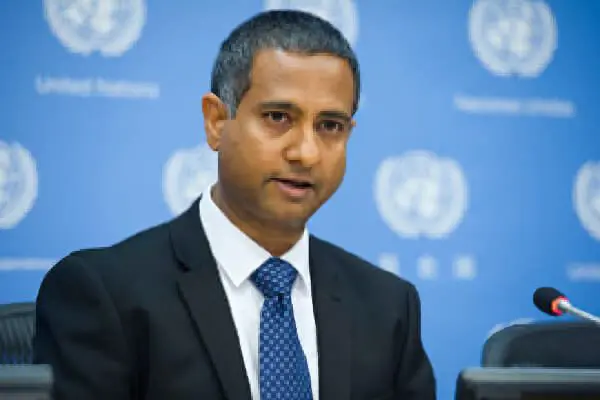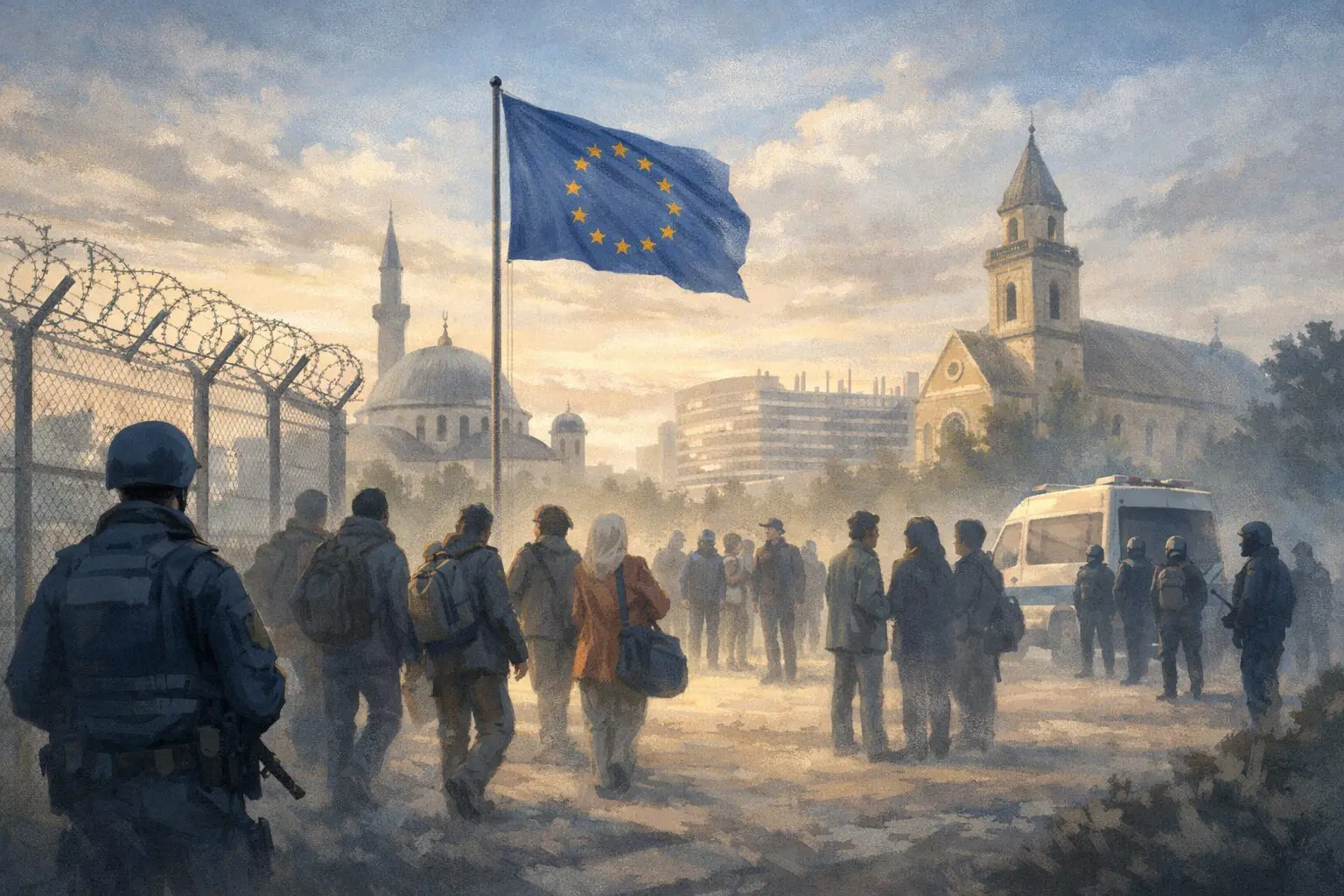GENEVA (23 March 2021) – United Nations human rights experts said today digitalisation and the COVID-19 pandemic had facilitated a new wave of stigma, racism, xenophobia and hate targeting minorities and those considered “others”, often promoted by authorities themselves, either directly or indirectly. Recalling the consensus achieved since the 24 March 2011 adoption of a Human Rights Council resolution on combating intolerance, they said in the following statement that States must ensure pluralism and stamp out negative stereotyping:
“On the 10th anniversary of Resolution 16/18, we welcome the Human Rights Council consensus around the issue of fostering freedom of religion or belief, reaffirming freedom of opinion and expression and combating advocacy of religious hatred that constitutes incitement to discrimination, hostility or violence.
Resolution 16/18 is remarkable for its eight action points that commit all States to take specific measures at the national level in policy, law and practice, to address intolerance and discrimination based on religion or belief and its root causes. These measures include building collaborative networks; creating mechanisms to identify tensions; encouraging training of government officials in effective outreach strategies; discussing root causes of discrimination; speaking out against hatred; criminalising incitement to imminent violence; combating negative stereotyping of persons through education and awareness building; and promoting open debate as well as interfaith dialogue.**
The “Istanbul Process”, which is the implementation mechanism for the resolution’s action plan, has facilitated so far seven rounds of meetings to foster international dialogue and practical experience-sharing, organised in Washington D.C., London, Geneva, Doha, Jeddah, Singapore and The Hague.
Sadly, a new wave of stigma, racism, xenophobia and hate has been amplified by digitalisation, social networks, and aggravated in the context of the pandemic, targeting minorities and those seen as ‘others’ with impunity. At the same time, the policing of opinions and expressions online, the targeting of certain religiouscommunities for reasons of national security, the use of counter-terrorism or public order laws to suppress legitimate expression have reinforced negative stereotypes and may contribute to incidents of intolerance, discrimination and violence against persons based on their religion, belief or opinions in any region of the world.
States are encouraged to implement the robust action plan using a comprehensive, carefully considered, transparent and inclusive approach. Any legal interpretations of the commitments undertaken in the action plan must fully comply with international human rights law.
Many States have resorted to restricting free speech as a way to addressing hate speech but any limitation of speech must remain an exception and strictly follow international human rights standards. This remains highly relevant today in light of State actions that are incompatible with freedoms of religion, belief, opinion and expression, including the use of anti-blasphemy and anti-apostasy laws, which render religious or belief minorities, including atheists and dissenters, vulnerable to discrimination and violence.
In this context, we voice our deep concern about the potential setback at the inter-governmental level due to the recently updated Cairo Declaration of the Organization of Islamic Cooperation on Human Rights, which provides in its article 21 that “freedom of expression should not be used for denigration of religions and prophets or to violate the sanctities of religious symbols”.
On that point, the Special Rapporteur on freedom of religion or belief has emphasised in his most recent report to the Human Rights Council that criticism of the ideas, religious leaders, symbols or practices should not be prohibited or criminally sanctioned. In another report to the General Assembly, the Special Rapporteur on freedom of opinion and expression reiterated the Human Rights Committee‘s jurisprudence that this right does embrace expressions that may be regarded as deeply offensive, such as blasphemy.
States must not revive the dangerous notion of ‘defamation of religions’ and the divisive debate that had undercut efforts to combat religious discrimination and intolerance prior to achieving this consensus agreement 10 years ago.
We call on States to operationalise the Rabat threshold test, which sets the right balance between protecting freedom of expression and prohibiting incitement to hatred, based on a case-by-case assessment of the context, speaker, intent, content, extent of dissemination and likelihood of harm.
Amid rising intolerance and concerns about the negative impacts of some policies to counter violent extremism or terrorism, we urge States to continue promoting religious pluralism and dismantle discriminatory structures that propagate negative stereotypes of persons based on religious, racial, gendered, migratory and disability status.”
ENDS
* The experts: Mr. Ahmed Shaheed, Special Rapporteur on freedom of religion or belief; Ms. Irene Khan , Special Rapporteur on the promotion and protection of freedom of opinion and expression; Mr. Fernand de Varennes, Special Rapporteur on minority issues; Mr. Clément Nyaletsossi Voule , Special Rapporteur on the right to peaceful assembly and of association; and Ms. Fionnuala Ní Aoláin, Special Rapporteur on the promotion and protection of human rights while countering terrorism.
The Special Rapporteurs and Working Groups are part of what is known as the Special Procedures of the Human Rights Council. Special Procedures, the largest body of independent experts in the UN Human Rights system, is the general name of the Council’s independent fact-finding and monitoring mechanisms that address either specific country situations or thematic issues in all parts of the world. Special Procedures’ experts work on a voluntary basis; they are not UN staff and do not receive a salary for their work. They are independent from any government or organization and serve in their individual capacity.
** Check the resolutions of the Human Rights Council and General Assembly on combating intolerance, negative stereotyping, stigmatisation, discrimination, incitement to violence and violence against persons, based on religion or belief as well as the related reports by the Secretary-General and High Commissioner:https://www.ohchr.org/EN/Issues/Minorities/Pages/CombatingIntolerance.aspx
For more information and media requests , please contact Chian Yew Lim (+41 22 917 9938 / clim@ohchr.org)
For media inquiries related to other UN independent experts, contact Renato de Souza (+41 22 928 9855 / rrosariodesouza@ohchr.org)
Follow news related to the UN’s independent human rights experts on Twitter @UN_SPExperts
Concerned about the world we live in?
Then STAND UP for someone’s rights today.
#Standup4humanrights
and visit the web page at https://www.standup4humanrights.org






